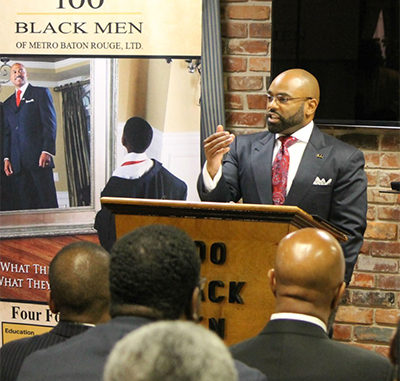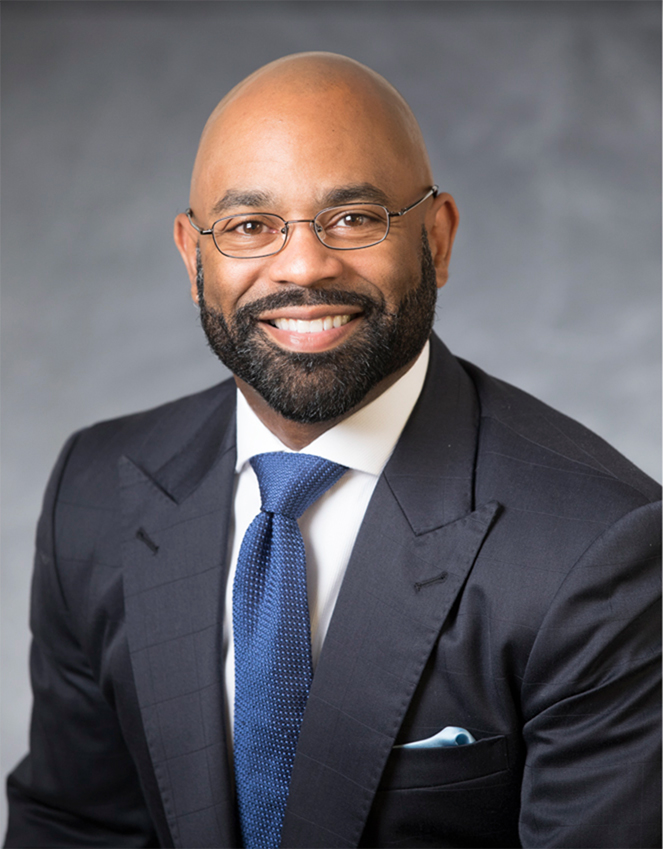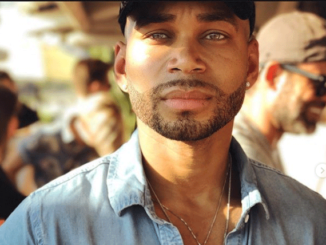
By Taroue Brooks
Tell us about your role and responsibilities at the 100 Black Men of Baton Rouge.
As Executive Director, I am responsible for managing all aspects of the organization to ensure maximum efficiency in a manner that supports our organization’s mission. Because our work and the impact that we seek to make are based in the delivery of high-quality programs, I remain proximal to our program and planning. I work to ensure that the programs are not only meeting our target, but are viable, with an eye toward strategic planning and future growth. Thankfully, I hired a Director of Programs who is an absolute star, and is leading our programmatic improvement strategies.
Equally important (or perhaps more important, depending on who you ask) is the organization’s finances. I serve as the de facto CFO, so most decisions that I make are in consideration of the financial impact to the organization. Ensuring that we not only remain on solid financial footing year-to-year, but ensuring long-term economic sustainability my primary focus when it comes to finance. I work toward the maximum utilization of our resources and to ensure that the organization remains in a positive financial position.
Finally, the third pillar of my responsibilities is Advancement, which encompasses strategic relationship management with our multiple constituencies through the integration our marketing and communications, and development programs. As a non-profit, it’s essential that we develop the revenues necessary to support our mission and also that our organization is enhanced through visibility in our community through positive and life-changing interactions.

What do you feel equipped you to tackle such a task to influence so many African American males?
The special thing about 100 Black Men of Metro Baton Rouge is that we (the mentors of the organization) represent the finished product that we want our young men to look like. As our motto aptly states, “What they see is what they’ll be.”
Mentoring and positively influencing the lives of young Black men is difficult. It is not a one-time event. It requires a dedication to the young men with whom we work, and the commitment to see them through life’s difficulties.
I feel equipped to tackle such an important task like this because throughout my life, I have been undergirded by the strength and wisdom of the men who poured into my life, starting with my father. My father was an absolutely brilliant gentleman who genuinely had a heart for people. He founded the Baton Rouge Chapter of The 100, which is a part of his enduring legacy and is a direct reflection of the trenchant commitment that he had to the betterment of our community. He instilled that ethic into me, which informs and influences my work with African American males, and our community at large.
If I accomplish anything of note or positively impact the lives of others, it is because I sit upon the shoulders of giants – the community leaders and stalwarts who preceded me in this work, who created a blueprint of community engagement and advancement.
How can people support your organization?
I tell everyone that there are four ways that people can support us…through giving their time, talent, tribe, or treasure. The gentlemen of this organization give liberally of their time to our programs and initiatives. Those who do not have the capacity to give much of their time can give of their talents. We always create opportunities for talented people to share their wisdom with our students.
For those who can commit neither their time nor their talent, I encourage them to contribute by sharing their tribe, or their network of connections. I have learned throughout my life the value of having an extensive network, and our have uncovered many opportunities from individuals outside the organization connecting us with others in their networks.
Finally, as a nonprofit, our mission must be resourced financially. The other way to support our work is by contributing financially or by positioning us in the flow of financial development opportunities.
How has your organization impacted the community?
I think that answer is best left to the members of the community we serve. When I evaluate our impact, I ask myself, “…but not for the 100.” In other words, what if it weren’t for The 100’s efforts, or if it weren’t for The 100’s programs, or if it weren’t for The 100’s presence. When I look around, I know that the “but not” moments are reminders of our footprint, legacy and ultimate impact.
What does legacy mean to you?
Legacy is a word that comes up frequently in conversation. I certainly look back on my father’s legacy with immense pride and fondness, but I don’t give thought to my own legacy.
I don’t consider building a legacy. The personal philosophy that guides me is to wake up each day choosing to be a good man, husband, father, servant, and leader, and living that day as perfectly as possible. Perfection, in this light, does not imply faultlessness, but instead to live in a consistent pursuit of excellence in every role that I play. My aim daily is to live this day in service to excellence. Over time, the sum of those days and the resulting impact will probably coalesce into a great legacy, but my personal philosophy, in all its simplicity, starts and ends with today.
What has been the most rewarding experience have you had in this leadership role?
My most rewarding experiences come through the eyes of the communities we touch – when our mentees come back and share their success stories…when we’ve helped that single mother change the trajectory of her son’s life for the better…when we are solutions-oriented and confront some of our community’s biggest challenges…when we are invited to have a seat at the table as a respected organization that is working daily to implement change…when we are about this work and are successful meeting our mission – those are the rewards that keep me going.
While your job is to help the young men, what have you learned from them?
Any mentor will tell you that more is learned from mentees than we teach to the mentees. I learn the power of one, one voice and one person to stand up for the right thing and want a change. The young people teach me the power of tenacity and remind me of my “why.” Some of them face the dimmest of circumstances, but do not get deterred. They excel despite the odds and remind me to continue to push and press toward all that is before me.
Where would you like to see the organization in the next five years?
My two greatest priorities for the future of The 100 are the operation of world-class programs and ensuring the long-term financial sustainability of the organization.
Programmatically, in any given year, we will work with around 1200 youths. In five years, I would like to see that number grow to ten-fold, while continuing to iterate and innovate our program strategies and models. I want our programs to be the best programs of their type in the world.
Financially, while our revenues have doubled since I moved into this position, there is a lot of room for growth. I would like to see another two- or threefold increase in our revenues, which would facilitate the aforementioned growth of our programs, and potentially the expansion of our physical footprint. I can foresee the day when we have a much larger, world-class facility that not only houses our offices and programs, but facilitates mutually beneficial partnerships with other organizations, and serves as a true community asset.







